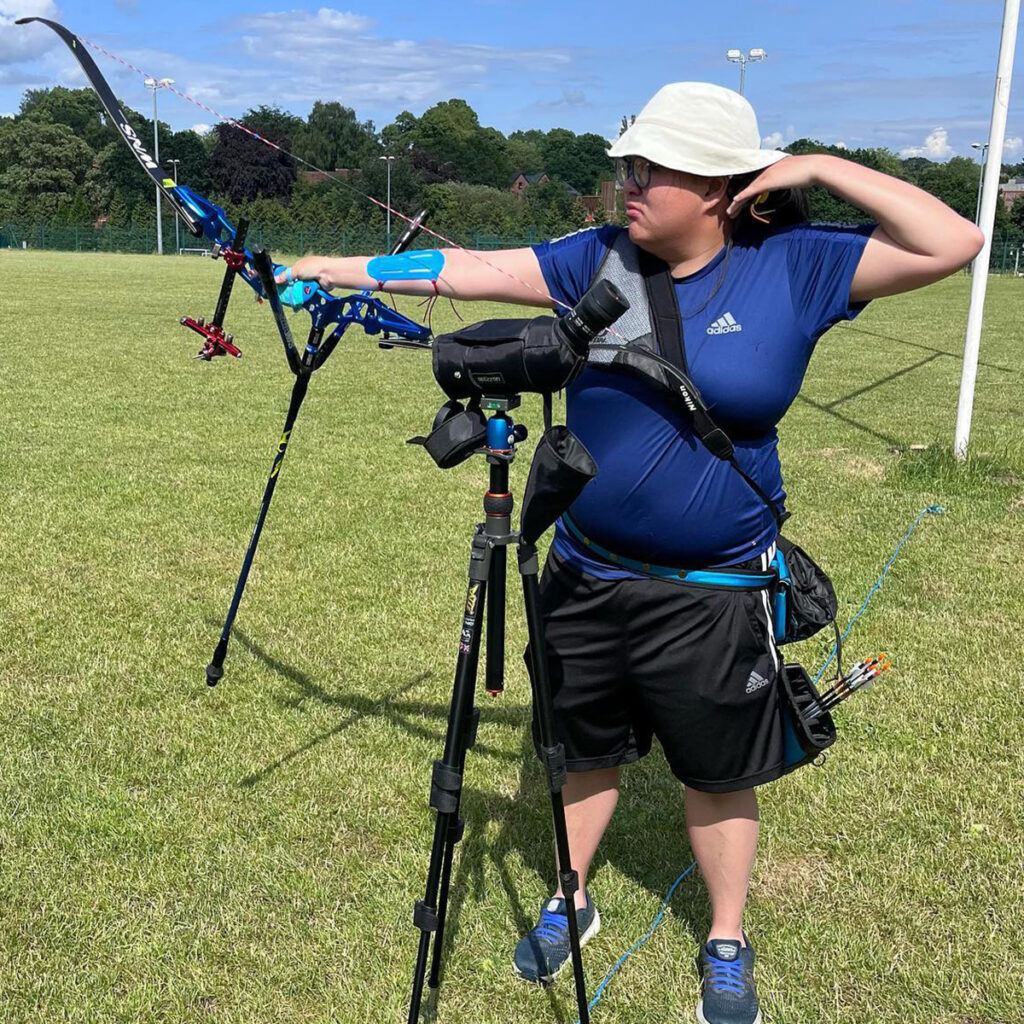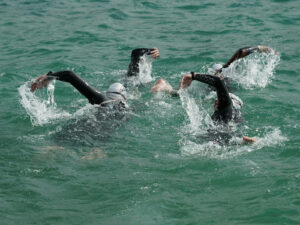Piangfan Naksukpaiboon: On target

Archery has always been something that has interested Piangfan Naksukpaiboon. She grew up in Thailand swimming and playing field hockey, but saw archery alongside the likes of scuba diving, rock climbing, and cycling at her new sixth form school in 2007 having moved to Norway on a scholarship.
It wasn’t until a couple of years ago, after the COVID-19 pandemic, that she eventually picked up a bow and arrow for the first time. Piangfan was settling in Birmingham with her wife and looking for a sport that would encourage her to be more active.
Piangfan first joined an archery club through the University of Birmingham, and as she gained more confidence and went to more competitions, she discovered that the Meriden Archery Club on the outskirts of Coventry was offering free coaching.
It took her three months to finish her beginners’ course – by which point she was hooked on the sport.
“Archery is one of the sports that attracts people who are neurodiverse because there’s an arc of repetition,” Piangfan said. “People think that you have to have the biggest muscles to do archery, but that’s wrong, we’re just using muscles that are not used a lot. It’s a repetition in sport and requires a lot of concentration.
“It used to be a sport that is not very easy to access, but now Archery GB has a ‘club finder’ where you can go online and type in your postcode and see where the closest archery club is to you.
“There are projects run by Archery GB to increase participation in the sport itself. For example, they are doing a project which supports people of Muslim faith to do archery because, fun fact, archery is one of the five sports prescribed in the Quran by Prophet Mohammed that should be done by Muslims to help them go to Heaven.
“Something that is good about Meriden is that we are an equal-performance club. While there will be people going out and about to different parts of the country to do competitions, you can contact Meriden to come and give archery a try for a few hours.
“There’s also a beginners’ course, and accessible facilities; the club is very much catered to all kinds of additional needs. We also do corporate events for companies around the West Midlands who are coming to us to learn about archery.
“The club is also very diverse; we have people from a lot of countries, and we have people of different abilities and all ages.
“If people express their interest in joining your club, just give them information, show your passion, respond to their emails – that’s a good start to making sure that places are open to everybody.”
Meriden Archery Club strives to provide participation opportunities all year round, from using indoor archery facilities in the winter to shooting in large outdoor fields with distances to the target ranging from 30 to 70 metres.
Piangfan sees that there are still ways to improve the sport’s accessibility, but she will continue to champion archery for anyone looking to try something new.
“I have always been someone who advocates for sport, diversity, and inclusion in all areas of my life, and one of the reasons why archery is something I really enjoy is because it is very inclusive.
“I’m also raising awareness in other ways because I’m one of only a few archers in the UK who does not own a car. Archery competitions are mainly in places where public transport is not the most accessible, but that’s the way I travel.
“It’s not just about getting people to join a sport, but if they want to compete, you need to have public transport options available, and now a lot of the competitions, including our national competition which happened this past December, have now started include public transport routes to make sure that people of all social and economic incomes and abilities can actually make it.”
Piangfan has already seen lots of the northern hemisphere through education – her undergraduate degree was in the USA, her master’s degree at home in Thailand and in Birmingham, and her PHD in Belfast – but after winning her club’s Senior Archer of the Year award, she now has aspirations to take on the world.
“Special Olympics does not have archery; the only way I can represent my country on a world stage would be going to the Olympics or the Hyundai World Archery Hub, which are definitely big aspirations for me.
“The reason why I want to do it is because I want to prove that although you’re neurodivergent, you can do it. Being able to shoot where the environment around me is loud, in a room where there’s clickers going off everywhere, where you compete against each other and the stress level is so high.
“The UK is home to some of the best archers in the world, so it’ll be a tall order. I actually practise with Tom Hall, who’s an Olympian himself. There was also James Woodgate who is an Olympic hopeful and Ella Gibson is also our member, she is world number one in compound archery. So, you get to meet a lot of cool people; the coaches are great.
“Just because you’re autistic, nothing can stop you from reaching your dreams and aspirations, so keep dreaming, keep trying. No matter what people say, no matter what people do, just remember it’s between you and yourself and it’s always about how you get better every day – even if it’s just one per cent.”


